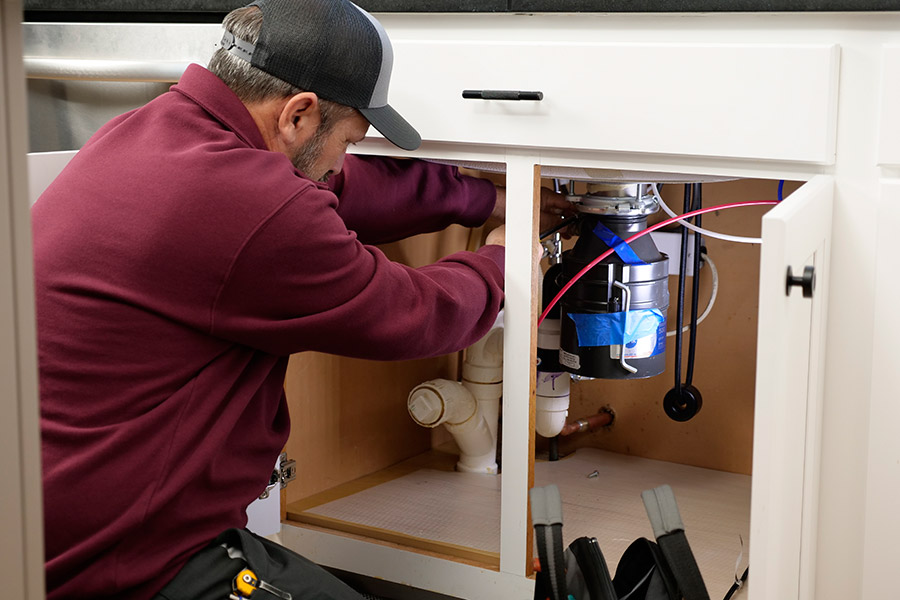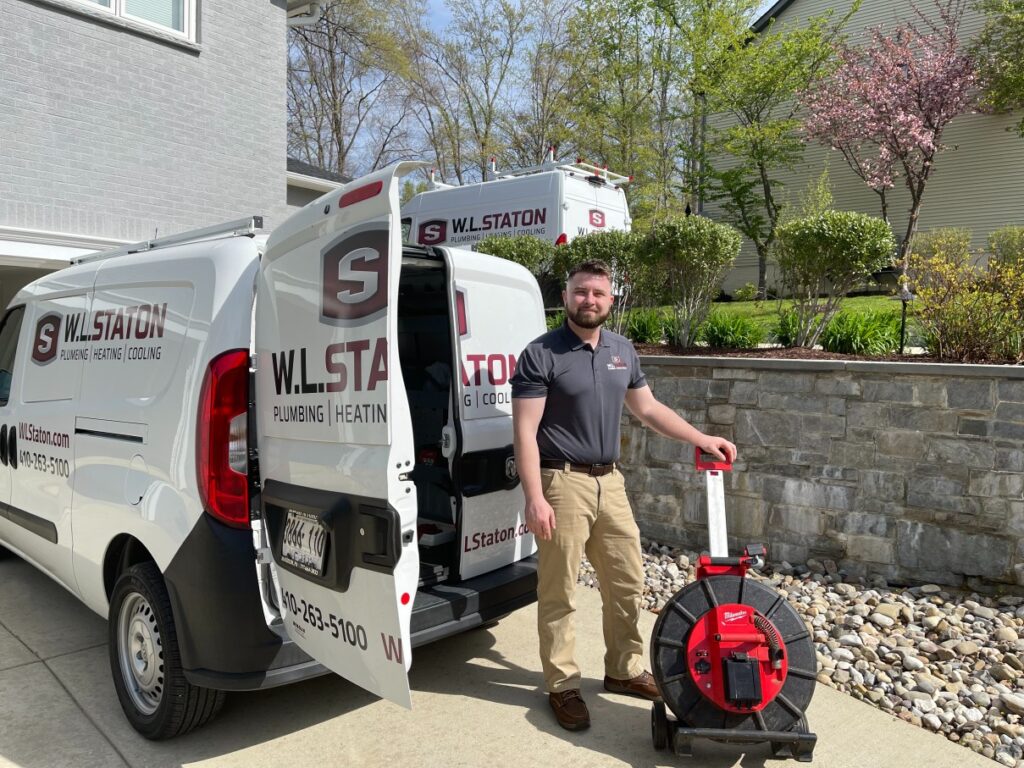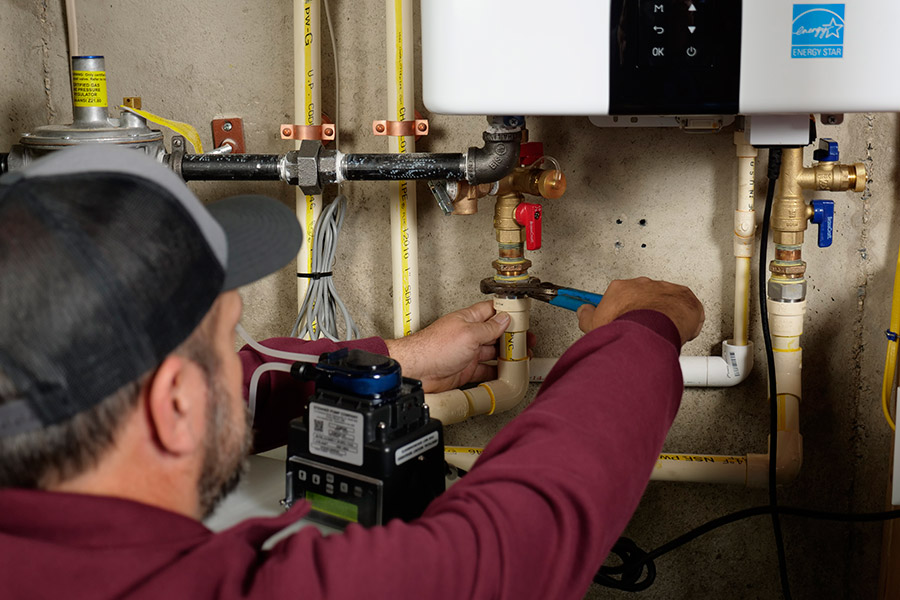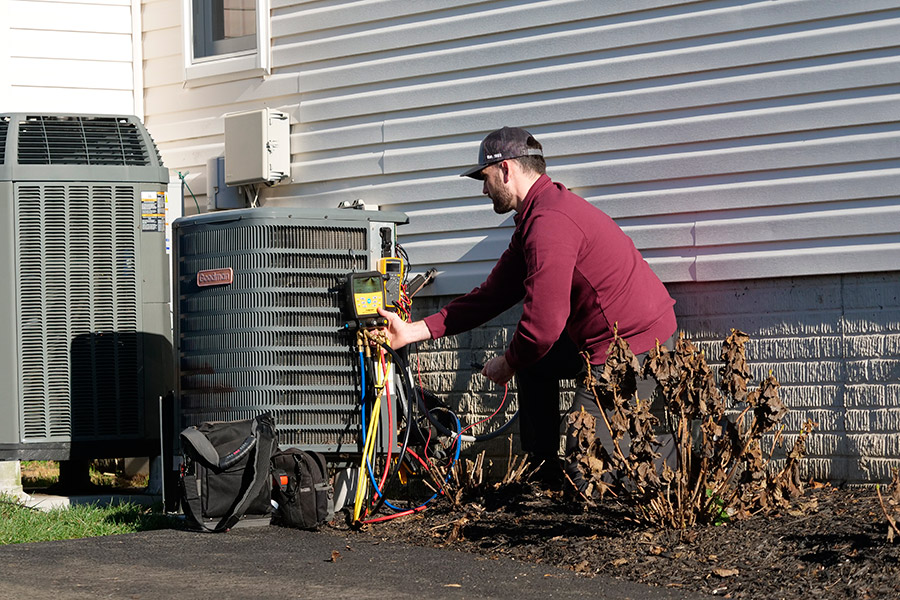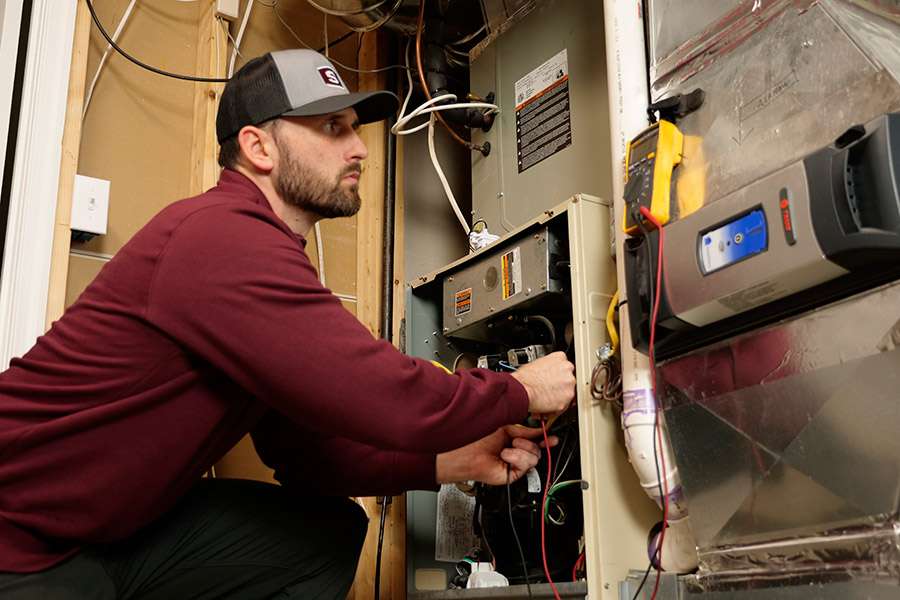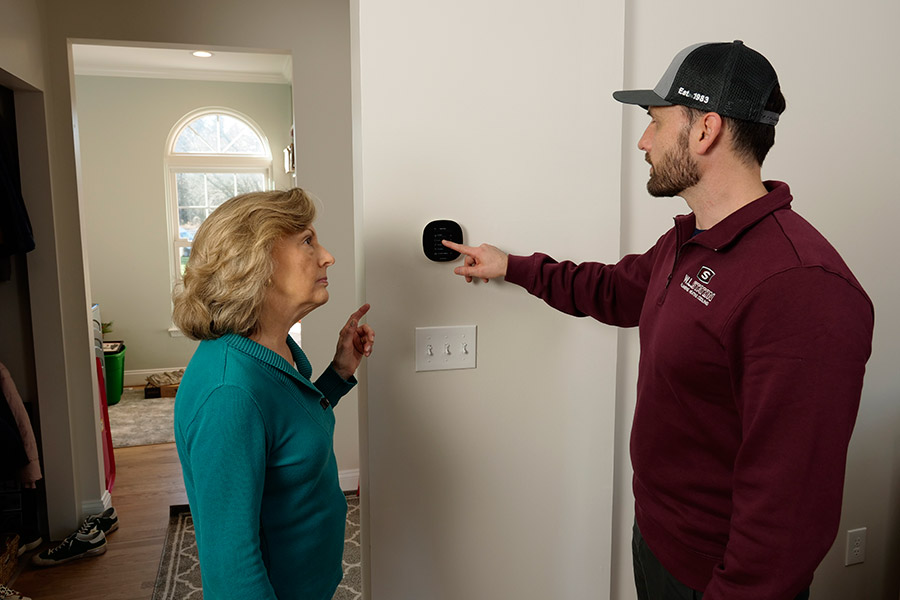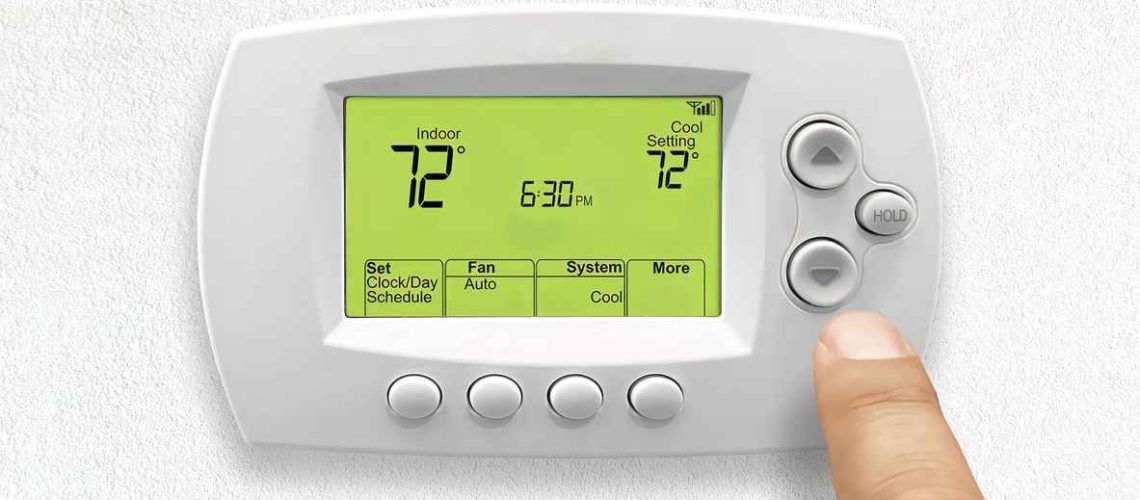Have you ever woken up in a room feeling stuffy and clammy? If so, chances are, your home may be suffering from high humidity levels. From sleep disturbances to mildew build-up, uncontrolled humidity can cause a range of problems that can affect your lifestyle and comfort.
That’s why having the right thermostat with humidity control is so crucial for your home. In this blog, W.L. Staton Plumbing, Heating and Cooling will explore why it’s essential to have the right thermostat to regulate humidity levels in your home.
How Can a Smart Thermostat Control Humidity in Your Home?
A smart thermostat can control humidity in your home through various means, depending on its features and capabilities. Here are some common ways a smart thermostat can manage humidity:
Humidity Sensors
Many smart thermostats come equipped with built-in humidity sensors. These sensors measure the moisture content in the air, allowing the thermostat to monitor the indoor humidity levels accurately.
Humidifier Integration
Some smart thermostats can connect and control compatible humidifiers directly. When the humidity level drops below the desired setpoint, the thermostat can activate the humidifier to release moisture into the air until the desired humidity level is reached.
Dehumidifier Integration
Similarly, smart thermostats can also integrate with dehumidifiers. If the indoor humidity is too high, the thermostat can activate the dehumidifier to remove excess moisture from the air until the desired humidity level is achieved.
Fan Control
The thermostat can control the HVAC system’s fan to regulate humidity. Running the fan independently of heating or cooling can help circulate the air, allowing for better humidity distribution throughout the home.
What are the Benefits of Having a Smart Thermostat with Humidity Control?
Having a smart thermostat with humidity control offers several benefits that contribute to a more comfortable and efficient home environment. Here are some of the advantages:
Improved Comfort
Maintaining optimal indoor humidity levels is crucial for comfort. With humidity control, the smart thermostat can ensure that the air in your home isn’t too dry or too humid, providing a more pleasant living environment for you and your family.
Energy Savings
By managing humidity levels, the smart thermostat can work in conjunction with your HVAC system more efficiently. For instance, during hot and humid weather, the thermostat can activate the AC and adjust humidity simultaneously, preventing excessive cooling and saving energy.
Healthier Indoor Air Quality
Proper humidity control helps prevent the growth of mold, mildew, and dust mites, all of which thrive in high humidity environments. By keeping humidity at an appropriate level, a smart thermostat contributes to healthier indoor air quality, reducing allergens and potential respiratory irritants.
What Features to Look for in a Thermostat with Humidity Control
When looking for a thermostat with humidity control, several essential features can ensure that you get a high-quality and effective device. Here are the key features to consider:
Humidity Sensor
The thermostat should have a built-in humidity sensor to accurately measure the moisture content in the air. This sensor is essential for the thermostat to control humidity levels effectively.
Target Humidity Settings
Look for a thermostat that allows you to set and adjust your desired humidity levels. Some thermostats may have specific presets for humidity, while others let you set custom humidity levels to suit your preferences.
Compatibility with HVAC System
Ensure that the thermostat is compatible with your HVAC system. This includes checking the wiring requirements and whether it works with your heating and cooling equipment.
Remote Access
A thermostat with humidity control that offers remote access via a smartphone app or web portal allows you to monitor and adjust humidity levels from anywhere, providing convenience and flexibility.
Tips for Using a Thermostat with Humidity Control Effectively
Using a thermostat with humidity control effectively can help you optimize comfort, save energy, and maintain a healthier indoor environment. Here are some tips to make the most of your thermostat’s humidity control feature:
Set the Right Humidity Level
Determine the ideal humidity level for your home. Generally, indoor humidity between 30% to 50% is recommended for comfort and health. Too high or too low humidity can lead to discomfort and other issues.
Combine Humidity Control with Temperature Settings
Many thermostats allow you to set humidity levels in conjunction with temperature settings. Consider how temperature and humidity interact to achieve maximum comfort and efficiency.
Pay Attention to Seasonal Changes
Humidity requirements may vary with the seasons. In winter, indoor air tends to be drier due to heating, while summer can bring higher humidity levels. Adjust your thermostat’s humidity settings accordingly.
HVAC Services in Maryland
A smart thermostat with humidity control enhances your home’s comfort, promotes better indoor air quality, and helps you save on energy costs. It provides an array of benefits that make it a valuable addition to any modern, energy-conscious home. If you’re looking for quality HVAC services to improve your home’s comfort, contact W.L. Staton Plumbing, Heating and Cooling to learn more about our services.

